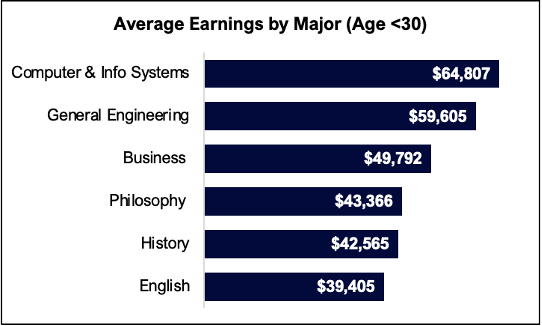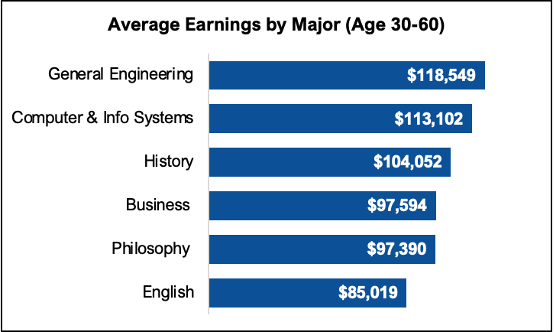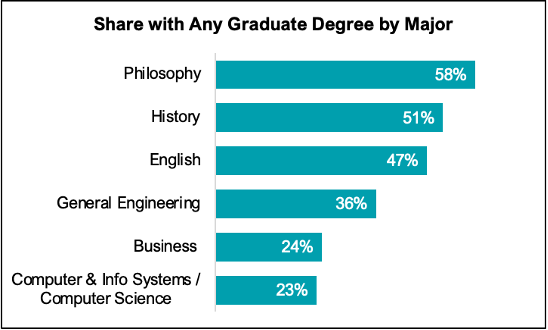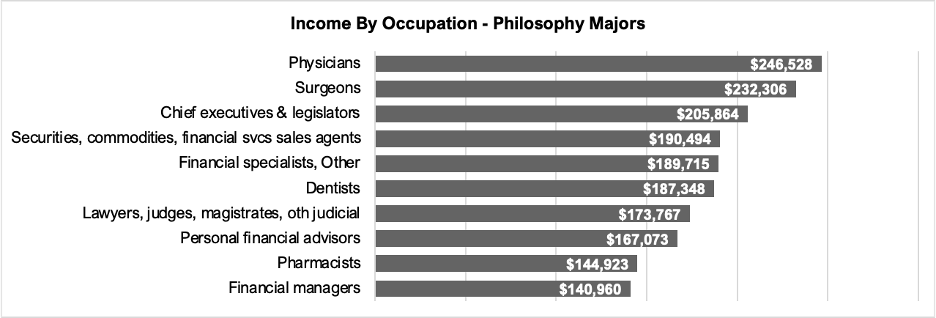History Beats Business
Business and STEM programs are often viewed as providing the path to prosperity for today’s students. Liberal arts, humanities, and social science programs, conversely, are viewed by many as a one-lane highway to low-paying jobs. But is this actually true?
We decided to take a look at what people actually earn based on their college majors. (Disclosure – many of us at Gray are liberal arts majors, so we have a little skin in the game). To do this, we analyzed American Community Survey (ACS) data on college majors and earnings. What we found may surprise you.
We compiled data for six majors*:
- Engineering
- Computer & Information Systems
- Business
- History
- Philosophy
- English
*ACS data is compiled by Field of Degree.
Engineering and Computer & Information Systems majors earn the most of the six majors we analyzed, both early on in their careers (age <30) and mid-to-late career (age 30-60). But when we looked at mid-to-late career earnings across all six majors, we found that History majors out-earned Business majors, and Philosophy majors make only a few hundred dollars a year less than their Business counterparts.


How can this be, you ask??
For one thing, more History and Philosophy majors go on to earn graduate degrees at higher rates than do graduates of other majors.

And these graduate degrees appear to lead to lucrative careers in fields often unrelated to the major, including healthcare, finance, and yes, even business. Who knew that the doctor in the operating room may be as adept as debating the origin of consciousness as he or she is at performing complex surgeries?

We will continue to explore how graduates of humanities programs use those degrees to navigate the job market, and broaden their potential appeal to employers. To find out more, read Fall Back Careers for Humanities Majors.
Source: Gray DI analysis of American Community Survey data.




